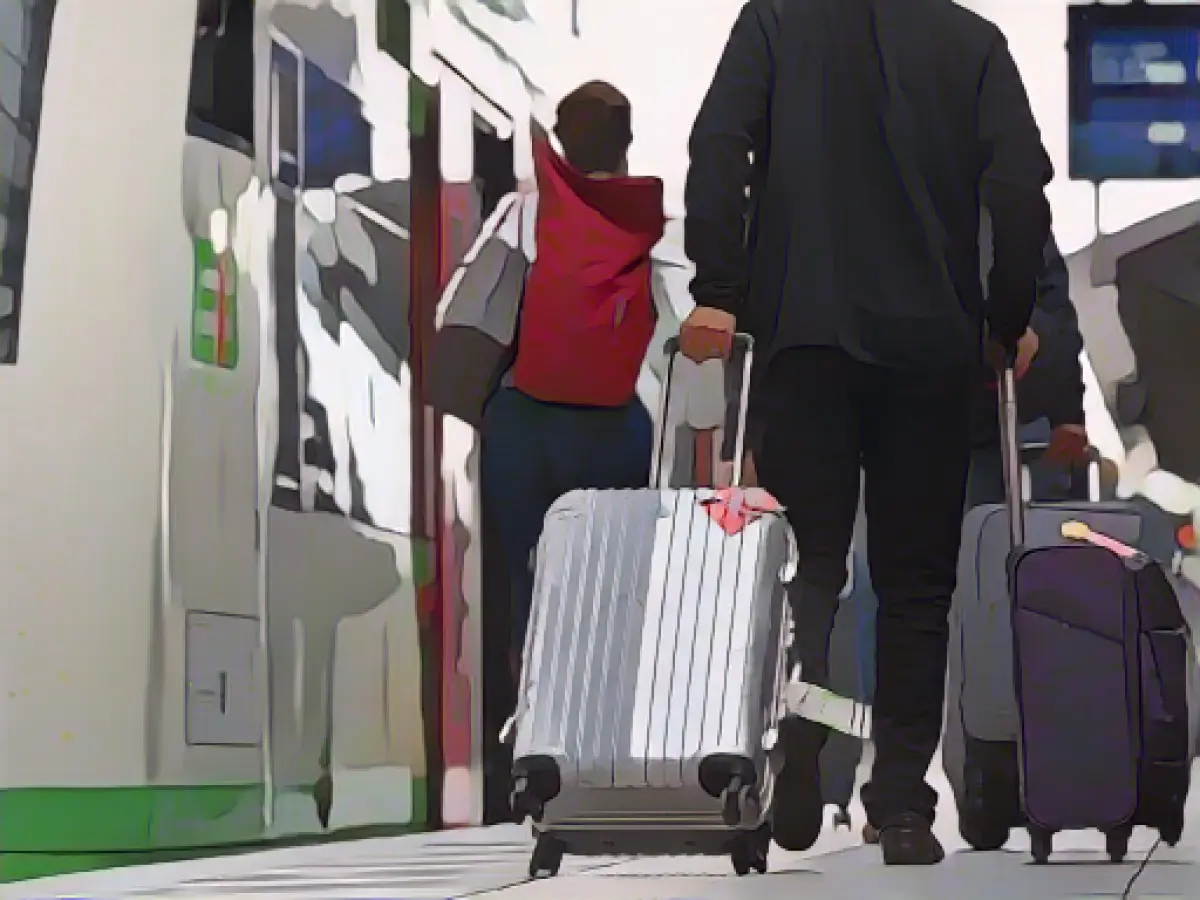Making Thuringia's Transport Sector Green by 2040: Strategies for Success
The Green parliamentary group in Thuringia is committed to making the state's transport sector climate-neutral by 2040. Laura Wahl, a Green transport politician, emphasized the importance of this goal, stating that as legislators, they must set a clear target to combat climate change. However, many villages in the state currently lack sustainable transportation options, making car usage essential for many residents.
To achieve this goal, a comprehensive approach is required. The Green parliamentary group is planning a mobility law that takes into account multiple modes of transport, including cars and bicycles. A holistic concept is crucial, according to Wahl. While she does not expect such a law to be introduced in this legislature, she is bullish about the potential impact it could have on making Thuringia's transport sector green.
To make sustainable transportation a reality in Thuringia, there are several strategies the Green parliamentary group can consider. Here are some suggestions based on enrichment data:
- Promote Public Transport:
Increase the frequency and reach of public transport systems, such as buses and trains, to provide reliable and efficient services. This can be achieved by extending lines to new destinations and increasing the number of trains. As seen in Germany, where public transport prices were reduced to encourage usage, this approach can be highly effective in promoting the use of public transport.
- Encourage Electric and Hybrid Vehicles:
Implement comprehensive vehicle taxation based on emissions to incentivize the use of electric and hybrid vehicles. This can include exemptions or reduced taxes for environmentally friendly vehicles. By following the OECD's suggestion for Poland, the Green parliamentary group can support the adoption of cleaner vehicles.
- Support Alternative Modes of Transport:
Develop and improve cycling infrastructure, including bike lanes and bike-sharing systems, to encourage the use of bicycles as a sustainable mode of transport. Enhance pedestrian paths and walking routes to promote walking as a viable option for shorter distances. Promote the use of electric bicycles, which can be particularly useful in areas where public transport is limited.
- Address Rural Transport Needs:
Implement targeted rural public transport solutions, such as community-based transport services or rural buses, to ensure that all villages have access to sustainable transport options. Engage with local communities to understand their specific transport needs and involve them in the planning process to ensure that solutions are tailored to their requirements.
- Incentivize Sustainable Choices:
Offer subsidies or incentives for individuals and businesses to adopt sustainable transport options, such as electric vehicles or public transport. Conduct educational campaigns to raise awareness about the importance of sustainable transport and the available options in each village.
- Invest in Green Infrastructure:
Install electric vehicle charging stations in rural areas to support the adoption of electric vehicles. Create green corridors along transport routes to reduce the environmental impact of transportation and enhance the aesthetic appeal of rural areas.
- Collaborate with Local Authorities:
Collaborate with local authorities and regional planning bodies to integrate sustainable transport solutions into broader regional development plans. Explore funding mechanisms such as EU grants or national subsidies that can support the implementation of sustainable transport projects.
By implementing these strategies, the Green parliamentary group in Thuringia can make significant strides towards making the transport sector climate-neutral by 2040 and addressing the lack of sustainable options in certain villages. The future of transport in Thuringia is green, and the Green parliamentary group is at the forefront of this transition.








